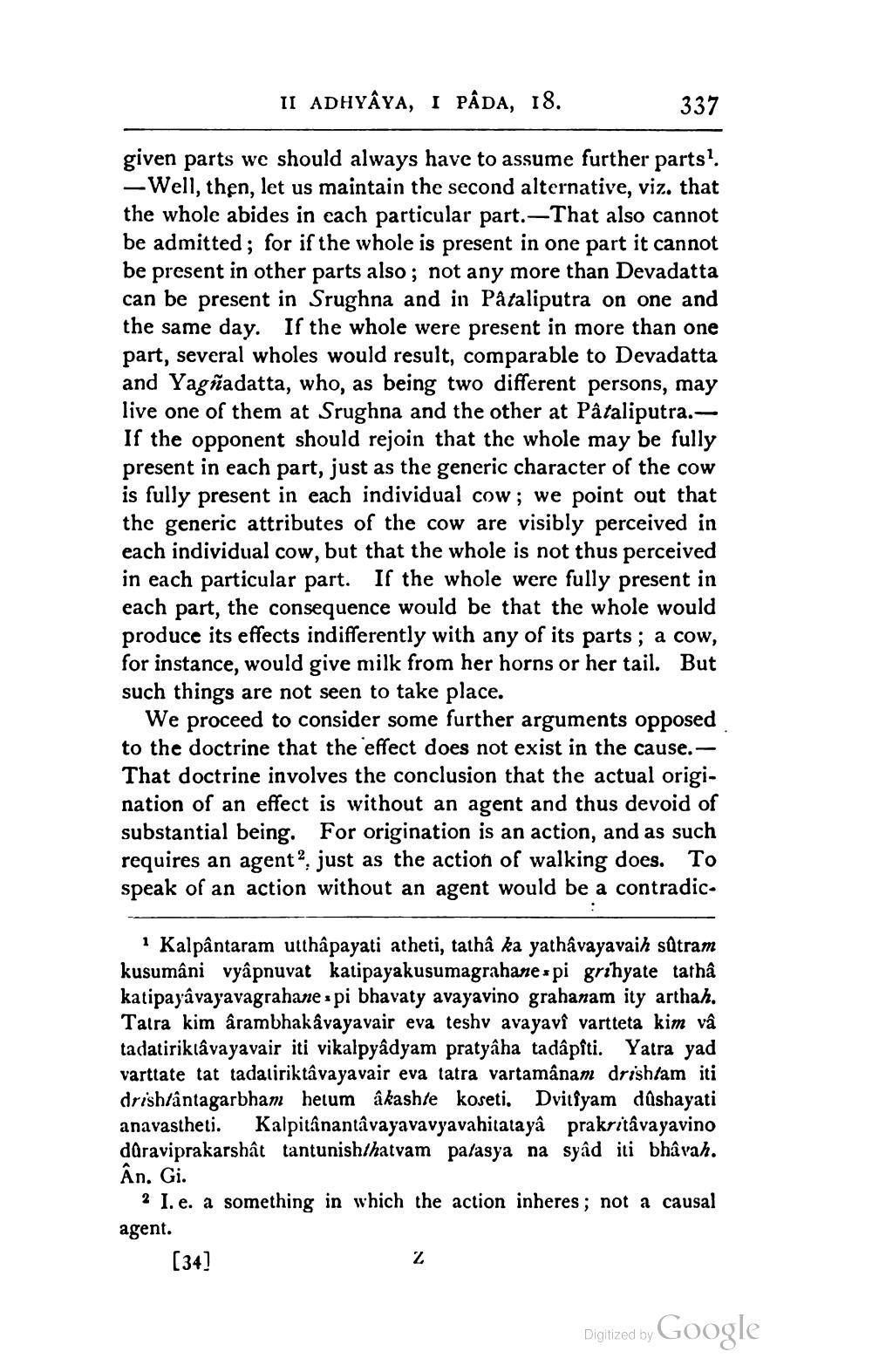________________
II ADHYAYA, I PÂDA, 18.
337
given parts we should always have to assume further parts?.
-Well, then, let us maintain the second alternative, viz. that the whole abides in cach particular part.-That also cannot be admitted; for if the whole is present in one part it cannot be present in other parts also; not any more than Devadatta can be present in Srughna and in Påtaliputra on one and the same day. If the whole were present in more than one part, several wholes would result, comparable to Devadatta and Yagñadatta, who, as being two different persons, may live one of them at Srughna and the other at Pâtaliputra.If the opponent should rejoin that the whole may be fully present in each part, just as the generic character of the cow is fully present in each individual cow; we point out that the generic attributes of the cow are visibly perceived in each individual cow, but that the whole is not thus perceived in each particular part. If the whole were fully present in each part, the consequence would be that the whole would produce its effects indifferently with any of its parts; a cow, for instance, would give milk from her horns or her tail. But such things are not seen to take place.
We proceed to consider some further arguments opposed to the doctrine that the effect does not exist in the cause. - That doctrine involves the conclusion that the actual origination of an effect is without an agent and thus devoid of substantial being. For origination is an action, and as such requires an agenta, just as the action of walking does. To speak of an action without an agent would be a contradice
1 Kalpântaram utthậpayati atheti, tathâ ka yathavayavaih sūtram kusumâni vyâpnuvat kalipayakusumagrahane s pi grihyate tatha katipa yava yavagrahanepi bhavaty avayavino grahanam ity arthah Tatra kim arambhakavayavair eva teshv avayavi vartteta kim vâ tadatiriktavayavair iti vikalpyâdyam pratyâha tadâpîti. Yatra yad varttate tat tadaliriktavayavair eva tatra vartamânam drishtam iti drishtåntagarbham hetum âkashte koseti. Dvitiyam důshayati anavastheti. Kalpitânantâvayavavyavahitatayâ prakritâvayavino
rakarshật tantunishthatvam palasya na syâd iti bhavah. Ân. Gi.
? I. e. a something in which the action inheres; not a causal agent.
(34)
Digitized by Google




